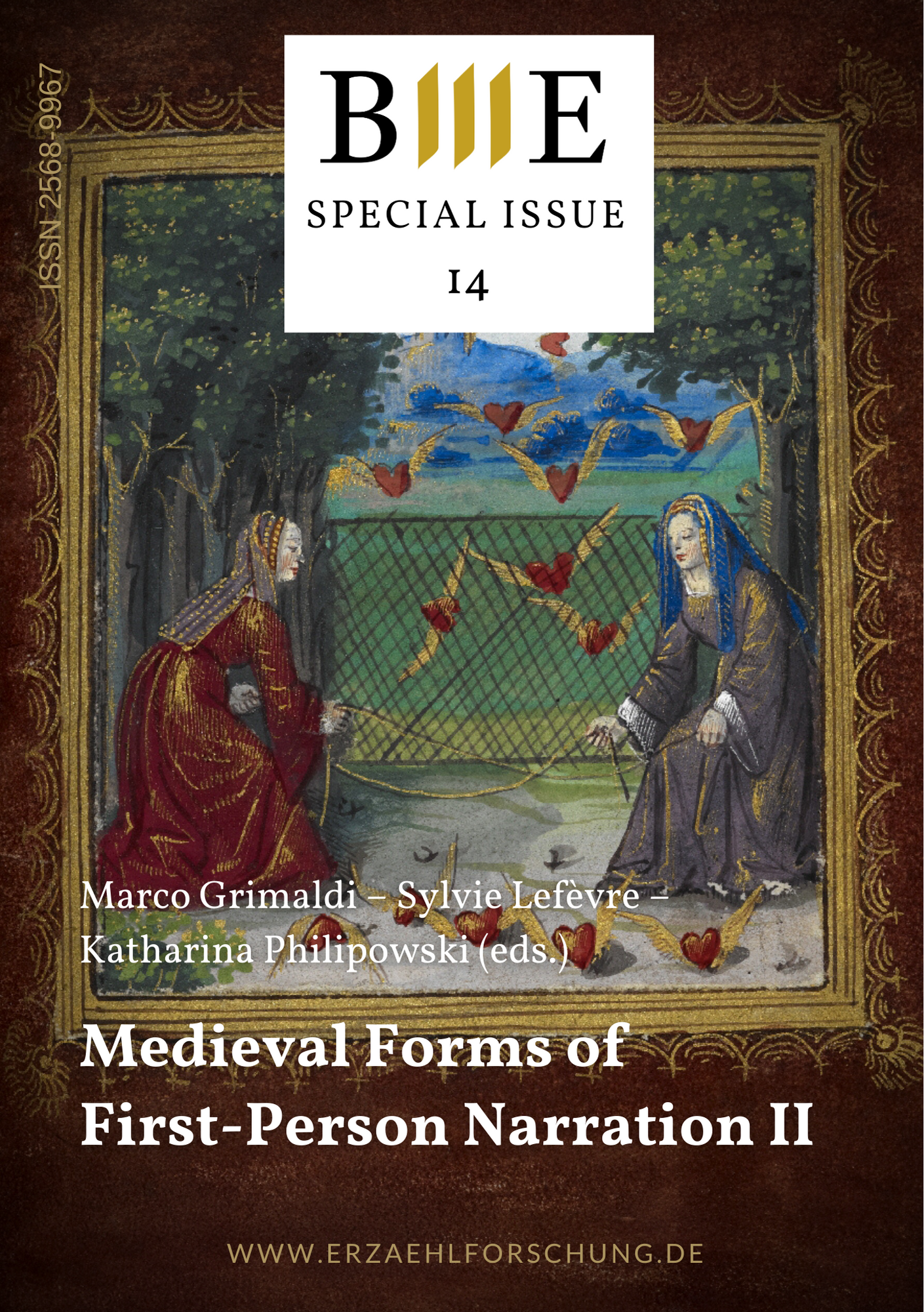Ich-Erzählen im Medium des Frühdrucks. Narrative und diskursive Strukturen in gedruckten deutschsprachigen Reimerzählungen um 1500 (Hans Folz, Sebastian Brant, Hans Sachs)
DOI:
https://doi.org/10.25619/BmE20225238Abstract
My paper presents three German poems from the late 15th/early 16th century that formally stand in the tradition of couple rhymed allegorical first-person narratives and thematically deal with the political conditions of their time. The three different authors represent two variants of a certain type of author belonging to the artisan class (Hans Folz, Hans Sachs in Nuremberg) or to the academically educated, bilingual (Latin/German) upper class (Sebastian Brant in Strasbourg) of the urban bourgeois culture. In both cases, they opened up early to the new medium of book printing. Consequently, the para-texts with which all three texts produced directly for print are equipped take on important functions within the new printing medium and the new practise of distance communication that develops from it, aiming above all at the staging of the respective authorship. The three selected case studies highlight the different literary and communicative strategies developed by each author under these auspices. What all three texts have in common, however, is a more or less sophisticated play with the two different discourse levels of the (fictional) narrator ego and the (real) author ego. Such a game is at the same time anchored in essential aspects within the socio-cultural environment of the authors and the respective specific literary culture. Thus, in the case of Hans Folz, as in the case of his successor Hans Sachs, the effort to adapt the handed-down medieval traditions and rhetoric models to the new conditions of vernacular communication visibly predominates. Differently, the concept of authorship claimed by Sebastian Brant is characterised by the effort to harmonise the function of the poet as orator and prophet, derived from the humanist tradition, with the instructional tasks fundamental to vernacular poetry.
Downloads
Veröffentlicht
Ausgabe
Rubrik
Lizenz
Copyright (c) 2022 Barbara Sasse

Dieses Werk steht unter der Lizenz Creative Commons Namensnennung - Nicht-kommerziell - Keine Bearbeitungen 4.0 International.





